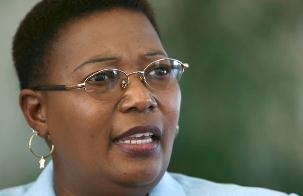
The rights of workers in Zimbabwe are not respected as the government continues to interfere with trade union activities, the United States (US) Department of State has said.
Zimbabwe has poor human rights record dating back to the era of late former president Robert Mugabe who ruled the Southern African nation for 37 years until toppled in the 2017 military coup.
In its 2019 Country Report on Human Rights Practices in Zimbabwe, released last week, the US Department of State said the government had unfairly treated workers who demanded better working conditions.
“The government did not always respect workers’ right to form or join unions, strike, and bargain collectively,” said the Department in a detailed report.
This was despite Parliament having enacted a bill establishing the Tripartite Negotiating Forum (TNF) in June last year to formalise dialogue efforts among government, labour leaders, and employers to discuss social and economic policy and address demands.
“The ZCTU (Zimbabwe Congress of Trade Unions) stated the TNF did little to address its demands for wage increases and labour law reform, and the government showed little progress in supporting workers’ protections, fairness, and peaceful resolution of labour disputes,” said the report.
“Government interference with trade union activity was common. Police and state intelligence services regularly attended and monitored trade union activities such as meetings. Police or ZANU-PF supporters sometimes prevented unions from holding meetings with their members and carrying out organizational activities.”
The report added: “Two ZCTU leaders were arrested and charged with subversion for their roles in promoting participation in January’s demonstrations. After 10 months of court appearances and strict bail conditions, to include surrendering their passports and reporting to police stations on a regular basis, the court dismissed the charges in November.”
The report further highlighted that when unions exercised their right to strike, the government met their efforts with violence and excessive force.
“For example, the ZCTU called for a three-day work shutdown beginning on January 14 in response to President Mnangagwa’s January 12 announcement of a 150 percent fuel price hike,” said the report.
“Between January 14 and January 16, security forces reportedly shot and killed 17 demonstrators and injured hundreds of other protesters. In the following weeks, security forces conducted raids and beatings, and arbitrarily arrested more than 800 persons.”
The report also made reference to September 3 last year, when the Zimbabwe junior doctors went on strike after failing to reach an agreement on a salary increase with the government.
“The government responded to the action with a proposed bill to designate medical providers as essential and prohibit them from striking,” said the report.
“The union (Zimbabwe Health Doctors Association)’s leader, Peter Magombeyi, was abducted and tortured before being released amid public outcry. In October the Labour Court ordered doctors to return to work–a court order that doctors ignored–and referred the labour dispute to arbitration. In November the Ministry of Health announced the termination of 486 doctors involved in the strike.”
Meanwhile, the Apex Council, an umbrella body for civil servants in the country, is seeking an urgent meeting with government this week over salaries, which have since been eroded by the inflation.






